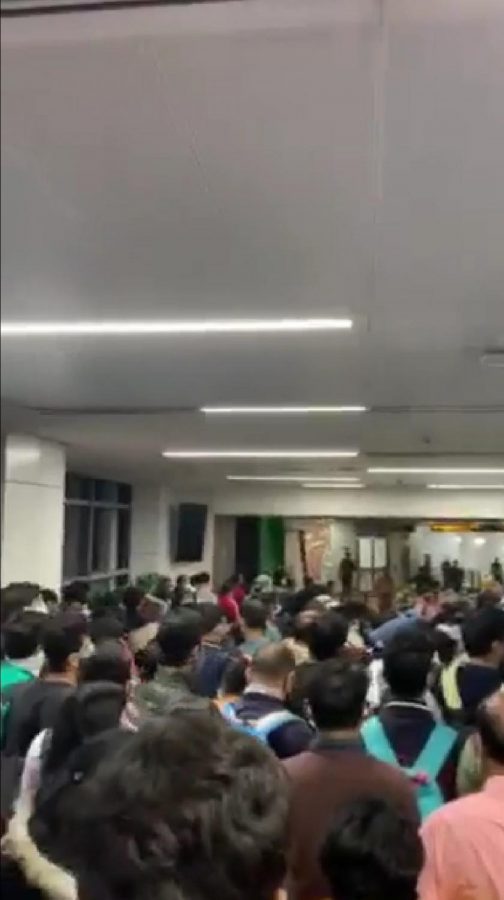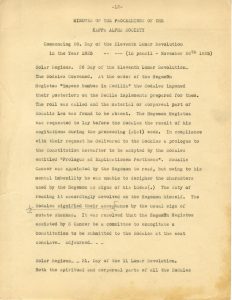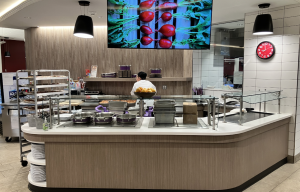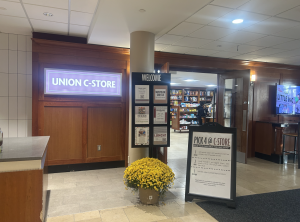Fourteen Hours in Delhi: A Student’s Journey Home
Crowds of travelers awaiting medical screening at at IGI airport, New Delhi.
April 14, 2020
NOTE: In the interest of full disclosure, the author is in a relationship with the interview subject.
On March 23, the Republic of India prohibited international arriving flights in response to COVID-19. According to the Indian Bureau of Immigration website,“no incoming scheduled international commercial passenger aircraft shall be allowed to disembark its passengers on Indian soil (Foreigner or Indian) after 2001 hrs GMT of March 22, 2020 (0131 hrs IST of March 23, 2020).”
The Concordiensis was able to speak with Meesha Gupta ’21 from the City of Jaipur in India. Gupta traveled with Akriti Dhasmana ’22, co-Editor-in-Chief, from Newark Liberty International Airport on March 22, and arrived the following evening at Indra Gandhi International Airport in New Delhi, the day before the borders were to be sealed from foreign air traffic. They remained there for fourteen hours.
According to Gupta, the cause of these delays were the two rounds of medical testing for COVID-19 that were performed on scene before anyone could leave the premises. Each incoming person was required to undergo two medical tests, and the gap between these tests was “about twelve hours”, explained Gupta.
The packed area was made worse by the conduct of airport security. Gupta claimed that overworked and outnumbered officers resorted to intimidation and threats of violence in the face of a crowd in discontent. ” “The police were ready to beat us up with sticks if we argued with them, asked them questions or tried striding forward. We were stuck in this loop of asking them questions and receiving no answers back. This one police officer literally said ‘because of you all, I have to work a 16-hour shift rather than a 10-hour shift’.” Gupta continued, “Each one of us was full of fear to say anything because they threatened to beat us up.”
Gupta emphasized that not only were security forces responding with intimidation tactics in the face of a frightened crowd, but they were as uninformed on the situation and times as the civilians waiting in line. “The word ‘update’ was not a part of the Delhi police’s dictionary. I cried in front of them explaining that my city will be locked down beginning from 7 am, and I need to go. At that point, it was about 11:30 pm. They just laughed and said ‘go talk to the senior officer, it will take 5-6 hours to get out of the airport’.” They didn’t end up leaving until after fourteen hours.
The Indian news outlet, The Hindu, quoted a tweet from Delhi International Airport Limited that warned of “longer wait times at T3 [terminal three] International Travel”. These were due to health screens and quarantine advisories imposed upon the airport by the Airport Health Organization (APHO), according to The Hindu. Nevertheless, the article quoted concerned passengers that echo Gupta’s complaints against airport conditions and law enforcement, and even more so about the risk of spreading the virus in such close quarters.
Throughout the whole ordeal, Gupta kept friends and family updated via social media by posting images and videos of the terminal. “That was solely for other Indians located in the US or UK(my friends) to watch so that they don’t plan to come back in such a ruckus or hassle.”
According to the Indian Government website, there are, as of April 12, 8988 “active” cases of COVID-19 in India. There have been 1035 people who recovered and 339 deaths.







